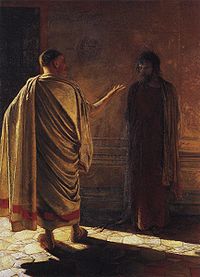
Responding to Mervyn Nicholson’s review of Frye’s Writings on Education, Clayton Chrusch writes:
I came across On Education when I returned to university to complete my undergraduate degree after a two year absence. I quoted it in nearly every essay I wrote for the rest of my time as an undergraduate. I had read The Educated Imagination as a teen and then again as a frosh, but did not understand it. But when I found On Education, I found something I could understand because it was essentially practical, even ethical. Not that I understood it all immediately. The remaining essays I wrote as an undergraduate had, beside the exploration of their primary subjects, the secondary agenda of coming to understand this little book of Frye’s. It was with On Education that I began my stack of index cards, and it still dominates that stack.
But the roots of my involvement with Frye’s thinking on education are even deeper than that. My grade twelve high school English teacher, Mr. Madill, handed out an article by Frye that appeared in the Toronto Star (Jan 26, 1986) called “Don’t you think it’s time to start thinking.” I still have it. The article is a humble little manifesto that I am sure Frye tossed off in twenty minutes, but it has in no way been superseded by anything I have read or thought. It is still the definitive articulation of my own views.
One of the things Frye writes is: “The vast majority of things that we hear today are prejudices and cliches, simply verbal formulas that have no thought behind them but are put up as a pretence of thinking.”
The only thing I would add to this is that the verbal formulas can become arbitrarily sophisticated without ever breaking into thought. There does seem to be a certain intangible moral element in education, as there is in everything. I suspect this intangible ultimately has something to do with whether we care for the truth itself or only our own possession of it. If we are willing to be wrong so that the truth can be right, I think we are on the right track. It’s hard to imagine Frye’s own verbal formulas being thrown up as a pretence of thought, but if Frye ever becomes as influential as he deserves to be, the false intellectuals of the world will certainly use him as they use whatever else commands authority.
I suppose what I am getting at is a defense of my more traditional idea of truth which certainly ties back to my more traditional idea of God that I alluded to it my last comment on belief. Frye shows us the necessary path to intellectual liberation, but being necessary does not make it sufficient. There’s an ingredient missing, an absolute, unconditional loyalty to a truth that we can neither have nor be. I don’t think Frye views things this way. Speaking about absolutes is a step too far for Frye, but I do not see how we can truly think unless we are willing, not only to build on what we have thought, but also dismantle what we have thought, even what we have believed passionately, and that is extremely painful and so requires a detached loyalty to something outside of us.
